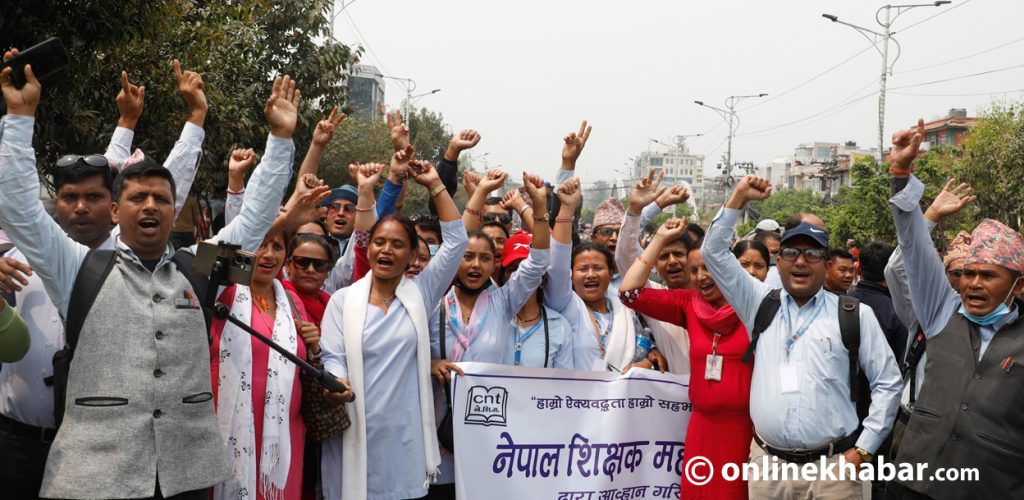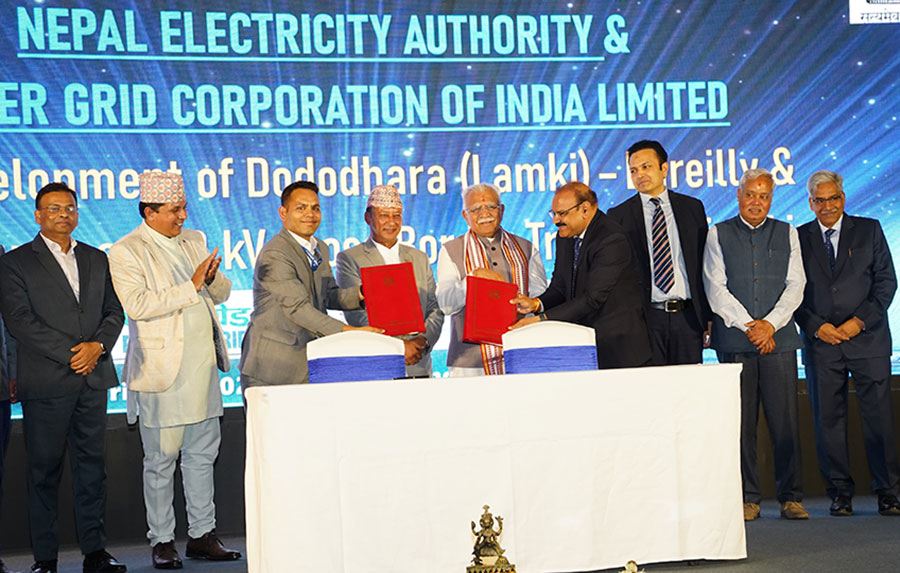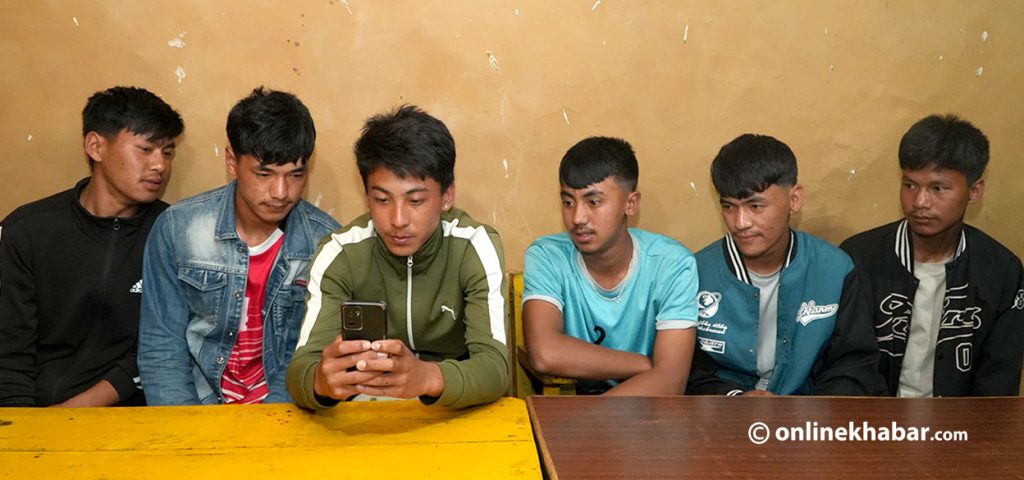
Following the government’s decision to name tentative administrative centres of the recently formed seven provinces, voices of discontent are being raised in different parts of the country. Almost all broadsheet dailies published in Kathmandu on Friday have given priority to reports on protests in Province 1, 2 and 5. Here’s a roundup of important, ignored and interesting stories that made it to the front pages of the press:
Important
Govt decision on provincial centres fuels protests in four cities

Protests in Birgunj demanding the city be made capital of Province 2The government’s decision to name centres for the seven provinces has been denounced by residents of Dhankuta, Doti, Birgunj and Dang. According to The Himalayan Times, an indefinite curfew has been clamped in Dhankuta (Province 1) after protestors vandalised the regional administration office. In province 7. The decision to recognise Dhangadi as the provincial capital sparked clashes in Doti. Similarly, Dipayal and Silgadhi remained closed for two consecutive days. In Birgunj, protesters called for a shutdown demanding that the Birgunj replace Janakpur as the provincial capital. In Dang, an all-party meeting decided to launch severe protests demanding that the city, and not Rupandehi, be named the provincial capital.
The Kathmandu Post says protests have also been reported in Kavre, Province 3. Kantipur and Nagarik, meanwhile, have chosen an alternative angle to the story. They say that the protesters need to understand that people in the provinces will be least affected by the location of their respective capitals. The papers say that most of the local government services can be availed at the municipalities and there shall be no need for anyone to travel to the provincial capital for regular administrative work.
Oli returns home, hints new government might replace governors

Prime Minister-in-waiting KP Sharma Oli returned to Kathmandu on Thursday from Bangkok, where he underwent ‘routine medical tests.’ Talking to mediapersons upon his arrival, Oli hinted that the new government might replace provincial governers named by the Deuba Cabinet.
Deuba under fire in key party meeting

Nepali Congress Central Committee members are learnt to have criticised Prime Minister and party President Sher Bahadur Deuba at a key meeting of NC leaders in the capital on Thursday. According to The Kathmandu Post, party leaders accused Deuba of breaching the party statute, choosing candidates arbitrarily, failing to exercise democracy within the party, and not following due decision-making procedures. They said that this was the reason, the party suffered a humiliating defeat in the elections. Nagarik says most of the leaders who criticised Deuba belong to the Ramchandra Paudel and Krishna Prasad Sitaula factions of the party
Ignored
Dhalkebar substation: Indian company wins contract

An Indian company has been awarded the contract to complete the remaining works of the Dhalkebar substation, which is to play a crucial role in Nepal-India cross-border electricity trade in the future. According to Karobar, the contract had been awarded to a Chinese company, but the Nepal Electricity Authority decided to revoke the deal after the company failed to complete the work on time. According to the report, more than 90 per cent of the work on the project has been completed.
Interesting
Prachanda to hold meetings only at party office

Rajdhani reports that former Prime Minister and CPN Maoist Centre chief Prachanda will no longer hold meetings at his personal residence. The report says that all such meetings will now take place at the party headquarters. The party took the decision after hundreds of people started thronging the Khumaltar residence to meet Prachanda. The party will now fix the daily meeting schedule of its Chairman.
‘Election money’ slowly returning to banks

Nagarik reports that billions or rupees spent by candidates during the run-up to the elections is slowly returning to the banking system. As per the prevailing laws, anyone who deposits more than Rs 1 million using a single deposit slip, needs to mention the source of the funds. That is the reason people are taking their time to deposit the money they earned during the election, says the report. The paper quotes a central bank official to say that although candidates spent billions of rupees on the campaign, money was not withdrawn from the banks in large amounts. This means that money used to finance the campaigns came from the grey economy.




















